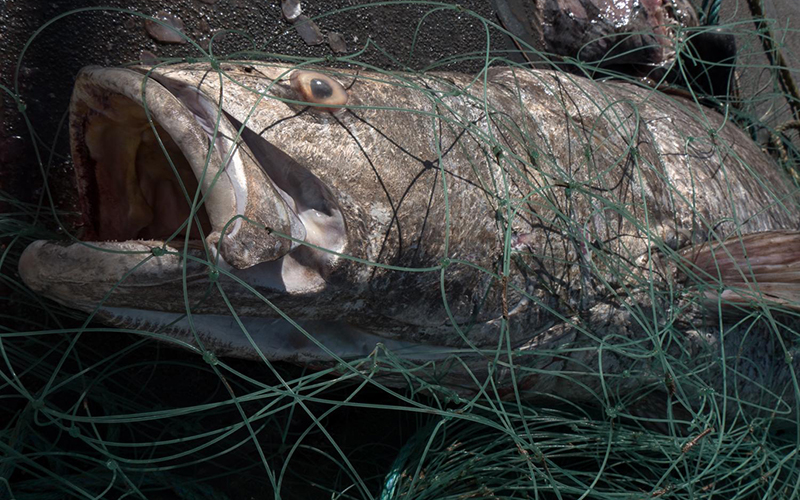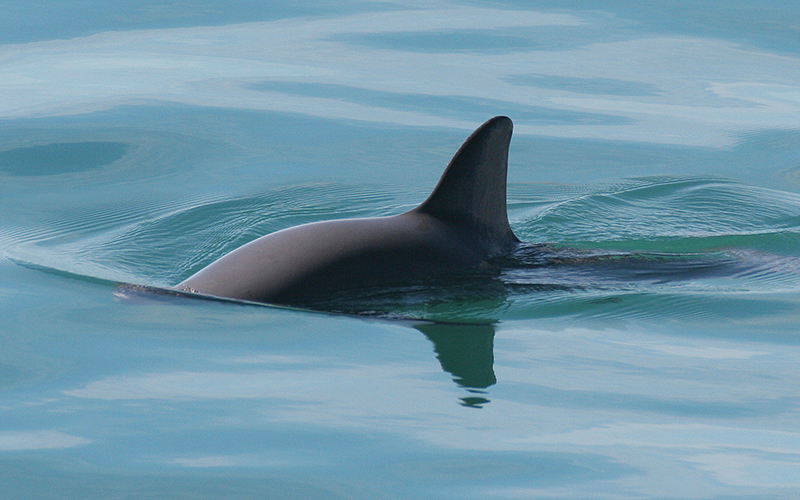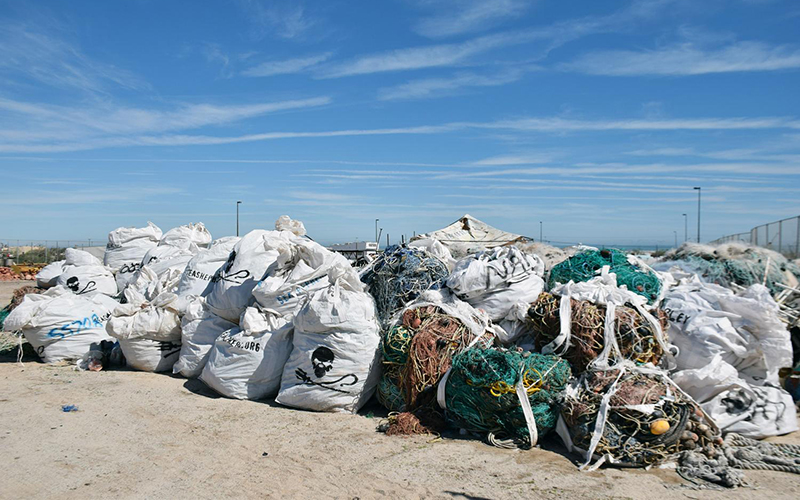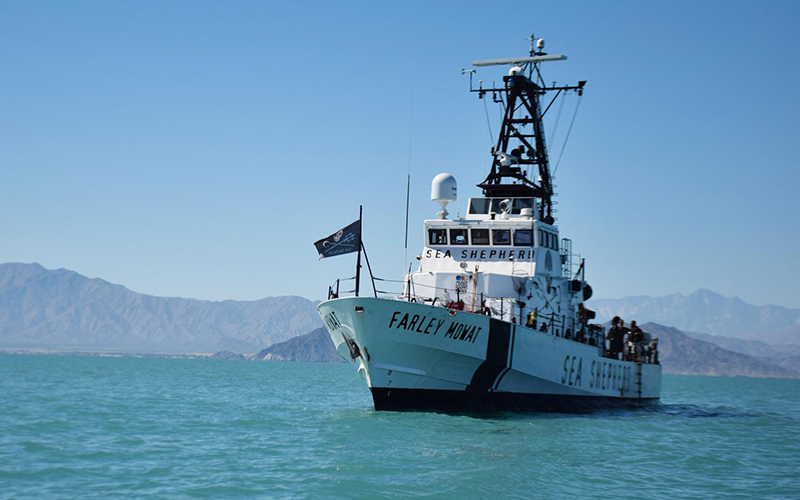
Poachers highly prize the giant totoaba because its swim bladder can sell for $80,000 a kilo on black markets in Asia. But the illegal gillnets they use also ensnare the critically endangered vaquita marina porpoise. (Photo courtesy of Sea Shepherd)

Only about 10 vaquitas are left, and gillnets poachers use to catch a valuable fish called totoaba are considered a threat to their survival. (Photo by Paula Olson/NOAA Fisheries)

Fishing nets pulled from the Sea of Cortez by the advocacy group Sea Shepherd are stored near San Felipe, Baja California, until they can be sent to be recycled. (Photo by Kendal Blust/KJZZ)
PHOENIX – A U.S. appeals court has upheld a ban on Mexican fish and shrimp caught with gillnets in the northernmost part of Mexico’s Sea of Cortez. The ban was implemented last July by the U.S. Court of International Trade to protect the vaquita marina, a small, endangered porpoise found only in that area.
The U.S. Court of Appeals for the Federal Circuit in Washington, D.C., last week rejected the U.S. government’s appeal to stay the seafood ban.
That’s a win for environmentalists who hope to pressure the Mexican government to protect the vaquita marina, which means “little sea cow” in Spanish. Only about 10 vaquitas are left, and gillnets are considered a threat to their survival.
“It is a desperate situation for the vaquita,” said Sarah Uhlemann, international program director and senior attorney for the Center for Biological Diversity, based in Tucson. “We believe that we need to put all the pressure possible on the Mexican government to get them to take action, to get them out on the water making sure that these dangerous nets are not being deployed.”
The center, along with the Animal Welfare Institute and the Natural Defense Council, sued the U.S. government in 2018 asking authorities to uphold the Marine Mammal Protection Act, which requires that seafood imported into the U.S. has been caught using the same standards for marine mammal bycatch that U.S. fishermen are subject to. Bycatch refers to the inadvertent killing or harming of marine mammals ensnared in fishing gear.
Last week’s ruling sends the issue back to the Court of International Trade for further proceedings and keeps the ban in place until then.
Uhlemann said the ban is necessary to prevent the vaquita from becoming extinct, and it ensures that U.S consumers aren’t buying shrimp and fish that endanger the porpoise.
Local fishermen, however, say the real problem is the gillnets used to illegally catch totoaba, another endangered species, which trap and drown the vaquita marina. Totoaba gillnets already are illegal in the northern tip of the Sea of Cortez, and hunting the 200-pound fish has been banned since 1975, when it was listed as critically endangered because of overfishing.
“It won’t help the vaquita at all to put a ban in place,” said Lorenzo Garcia, president of the largest fishermen’s federation in San Felipe, Baja California. The seafood ban only hurts legal fishermen rather than addressing illegal totoaba poaching, he said.
Despite the ban, totoaba poachers – some of whom are connected to Mexican drug cartels – continue to hunt the fish. The totoaba’s swim bladder, which controls buoyancy, can fetch as much as $80,000 a kilo on black markets in Asia, where it’s used in traditional medicine and cuisine.
Uhlemann said cracking down on totoaba poaching is important, but it isn’t enough. To save the few vaquitas that are left, she said, all gillnets have to be kept out of the water.
This story is part of Elemental: Covering Sustainability, a multimedia collaboration between Cronkite News, Arizona PBS, KJZZ, KPCC, Rocky Mountain PBS and PBS SoCal.
AlertMe
